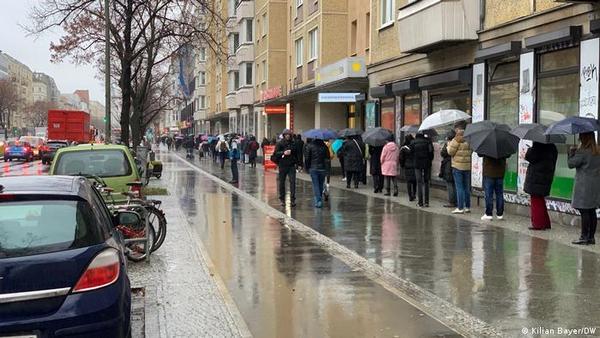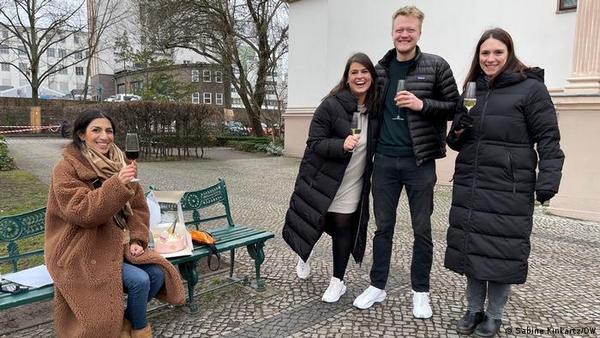Just In
- 4 hrs ago

- 4 hrs ago

- 8 hrs ago

- 15 hrs ago

Don't Miss
- Sports
 Manchester City vs Chelsea LIVE Streaming: Where to Watch FA Cup Semi-Final in India, UK, USA and Other Countries
Manchester City vs Chelsea LIVE Streaming: Where to Watch FA Cup Semi-Final in India, UK, USA and Other Countries - Finance
 1:10 Stock Split: Below Rs 10, Fertilizer Sector Turned Ex-Split; 8,282% Returns In 5 Years
1:10 Stock Split: Below Rs 10, Fertilizer Sector Turned Ex-Split; 8,282% Returns In 5 Years - Movies
 Pukaar Dil Se Dil Tak Promo: Sayli Salunkhe Impresses In First Video Of Sony TV Show, Details About Her Role
Pukaar Dil Se Dil Tak Promo: Sayli Salunkhe Impresses In First Video Of Sony TV Show, Details About Her Role - News
 Chinese President Xi Jinping Orders Biggest Military Reorganisation Since 2015
Chinese President Xi Jinping Orders Biggest Military Reorganisation Since 2015 - Education
 Exam Pressure Does Not Exist; Studying Punctually is Crucial; Says Aditi, the PSEB 2024 Topper
Exam Pressure Does Not Exist; Studying Punctually is Crucial; Says Aditi, the PSEB 2024 Topper - Automobiles
 Suzuki Swift Hatchback Scores 4 Star Safety Rating At JNCAP – ADAS, New Engine & More
Suzuki Swift Hatchback Scores 4 Star Safety Rating At JNCAP – ADAS, New Engine & More - Technology
 Dell Introduces AI-Powered Laptops and Mobile Workstations for Enterprises in India
Dell Introduces AI-Powered Laptops and Mobile Workstations for Enterprises in India - Travel
 Journey From Delhi To Ooty: Top Transport Options And Attractions
Journey From Delhi To Ooty: Top Transport Options And Attractions
Omicron: German Capital Berlin Turns Into COVID Hotspot

Four young people are sitting outside the registry office in Berlin's Charlottenburg district, wearing thick jackets, holding a bottle of champagne and a small wedding cake. Their loud laughter echoes through the air. Angela and Johannes just got married — under COVID-19 restrictions, which allow only seven people to attend the ceremony. "We had to submit the registration in writing and for the wedding we had to be vaccinated, recovered or recently tested," says the bride. The ceremony lasted 10 to 15 minutes, she says. We were allowed to take off our masks and kiss each other when we said yes," she says happily. She does not want to let the steep increase in infections throughout Berlin spoil her mood.
But the mood is somber in the lively district of Kreuzberg. It's unusually quiet here in the streets with their many small shops, restaurants and cafes. Only a few passers-by are out and about. "It's totally dead," says a saleswoman resignedly. She has never experienced such a slump before. But with the high number of infections, practically no one dares go outside anymore.

The number of infections in Berlin has skyrocketed. The 7-day incidence stands at almost 1,000 infections per 100,000 inhabitants. Omicron has long since replaced the Delta variant.
Especially in the densely populated districts like Mitte and the southeastern areas of Neukölln, Friedrichshain and Kreuzberg.
Long lines at testing centers
The high number of infections has led to a rush to the twelve state-owned test centers that offer free rapid antigen and PCR tests.
Long queues stretch along the streets. One young couple standing outside the test center in Wedding district on Saturday afternoon told DW they had already been in line for an hour and would certainly have to wait another hour. "We did two rapid tests that were negative each time," they say. "But we have had contact with someone who is infected. That's why we now want clarity through a PCR test."
Behind them are numerous people waiting, all with FFP2 masks and spaced out at large distances. The line is at least 300 meters long (nearly 1,000 feet). Rain is expected at the beginning of the week. Anyone who is not infected with COVID here will certainly catch at least a cold.
Antigen or PCR test?
The queues in front of the test centers belonging to the commercial provider Coronatest.de are not as long. The company operates 50 test centers nationwide, 20 of which are in Berlin. It offers antigen and PCR tests, which are evaluated in four of its own laboratories, explains managing director Benjamin Föckersberger in an interview with DW.
Here, PCR swabs cost between €14.99 and €120 ($17.10-$137), depending on how quickly you want an answer and what you need the test for.
Testing labs on the verge of collapse
In Berlin, only two laboratories have been commissioned to evaluate the tests from the public test centers. Because of the overload, it sometimes takes three or more days before the result is communicated.
Even the city's renowned Charité University Hospital is affected, because every patient who is admitted must first be isolated until the result of the PCR test arrives. His company has offered to step in and offer capacities, but the health administration has so far rejected this.
Sick leave threatens the economy
Benjamin Föckersberger hopes that the city's new top health official, Ulrike Gote, will soon solve the problem of the overcrowded test centers and that his company is also granted some support. At the moment, however, he has another problem: numerous employees have also called in sick in his test centers, so that he can only operate some centers at half capacity.
High infection numbers and high numbers of people out sick could soon lead to a loss of care for the population in Berlin. The shelves in the supermarkets are still well stocked. But infrastructure challenges keep coming — even the city's public transport companies have already announced that they will limit the number of buses on some lines this week.
This article was originally written in German.
While you're here: Every Tuesday, DW editors round up what is happening in German politics and society. You can sign up here for the weekly email newsletter Berlin Briefing, to stay on top of developments as Germany enters the post-Merkel era.
Source: DW
-
 disorders cureIndia May See A Covid Surge In January, Next 40 Days Crucial; Here Is How To Protect Yourself From COVID-19
disorders cureIndia May See A Covid Surge In January, Next 40 Days Crucial; Here Is How To Protect Yourself From COVID-19 -
 disorders cureCOVID Can Trigger Parkinson's Disease: Study
disorders cureCOVID Can Trigger Parkinson's Disease: Study -
 disorders cureCommon COVID Symptoms In Fully Vaccinated Individuals: What You Should Know
disorders cureCommon COVID Symptoms In Fully Vaccinated Individuals: What You Should Know -
 wellnessMild COVID Linked To Life-Threatening Blood Clots, Increased Risk Of Cardiovascular Disease; Study
wellnessMild COVID Linked To Life-Threatening Blood Clots, Increased Risk Of Cardiovascular Disease; Study -
 wellnessCOVID-19 Variants In India: New COVID Variant May Pose Threat To Elderly People
wellnessCOVID-19 Variants In India: New COVID Variant May Pose Threat To Elderly People -
 basicsCovid-19 Linked To Early Onset Of Periods: What You Need To Know
basicsCovid-19 Linked To Early Onset Of Periods: What You Need To Know -
 wellnessCOVID XBB Variants Of Omicron In India: What You Should Know
wellnessCOVID XBB Variants Of Omicron In India: What You Should Know -
 disorders cureNew Omicron Subvariant BQ.1 Detected In Maharashtra: What You Should Know
disorders cureNew Omicron Subvariant BQ.1 Detected In Maharashtra: What You Should Know -
 disorders cureOmicron BF.7 In India, Risk Of Fresh Wave During Diwali: What You Should Know
disorders cureOmicron BF.7 In India, Risk Of Fresh Wave During Diwali: What You Should Know -
 womenPriyanka Chopra Speaks On Climate Change, COVID, Poverty At The UN Sustainable Development Goals 2022 Moment
womenPriyanka Chopra Speaks On Climate Change, COVID, Poverty At The UN Sustainable Development Goals 2022 Moment -
 wellnessCoronavirus Residues Might Be Causing Long COVID: New Study
wellnessCoronavirus Residues Might Be Causing Long COVID: New Study -
 art cultureRenowned Spanish Author Javier Marias Passes Away Due To Lung Infection Post COVID-19
art cultureRenowned Spanish Author Javier Marias Passes Away Due To Lung Infection Post COVID-19


 Click it and Unblock the Notifications
Click it and Unblock the Notifications



